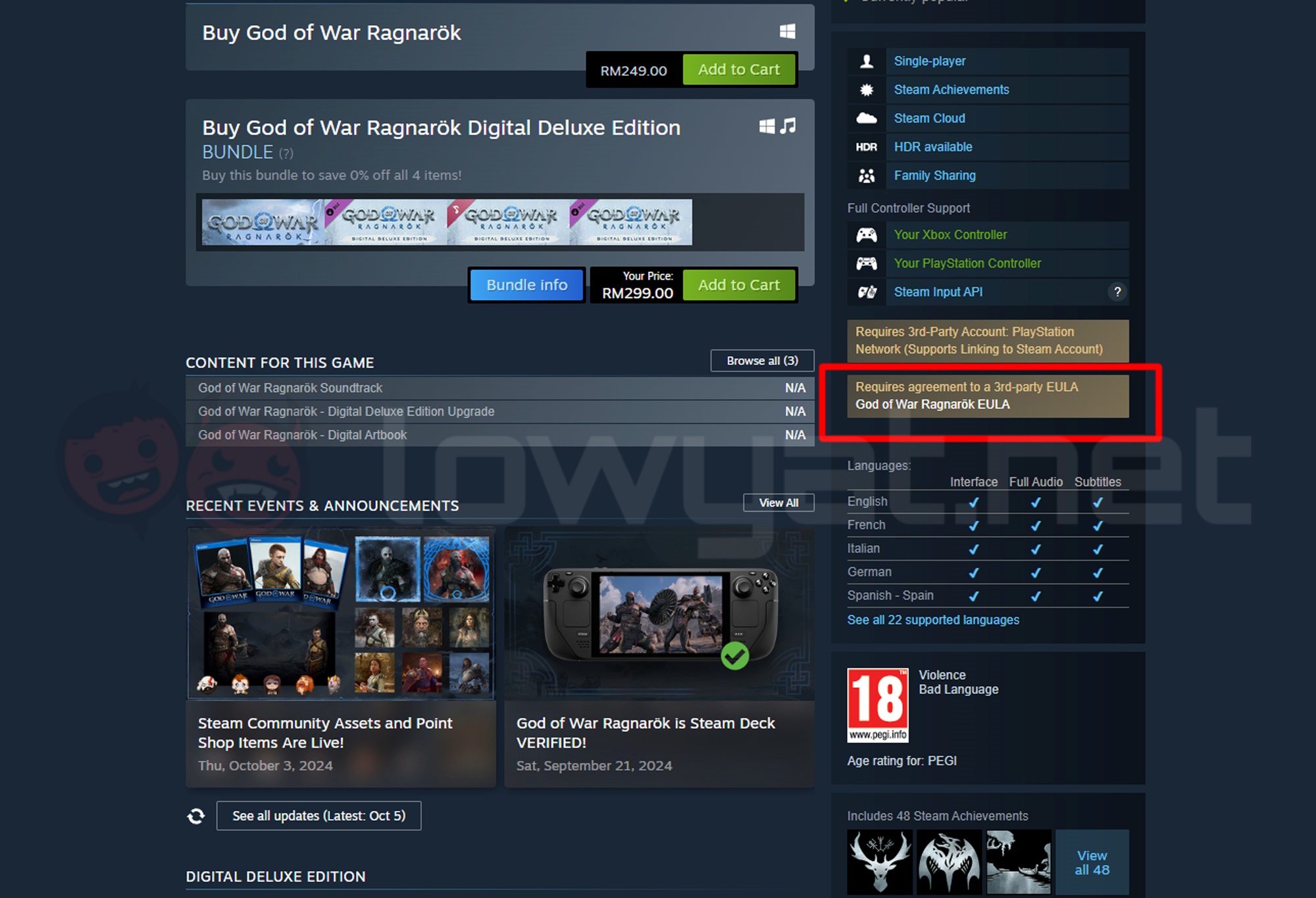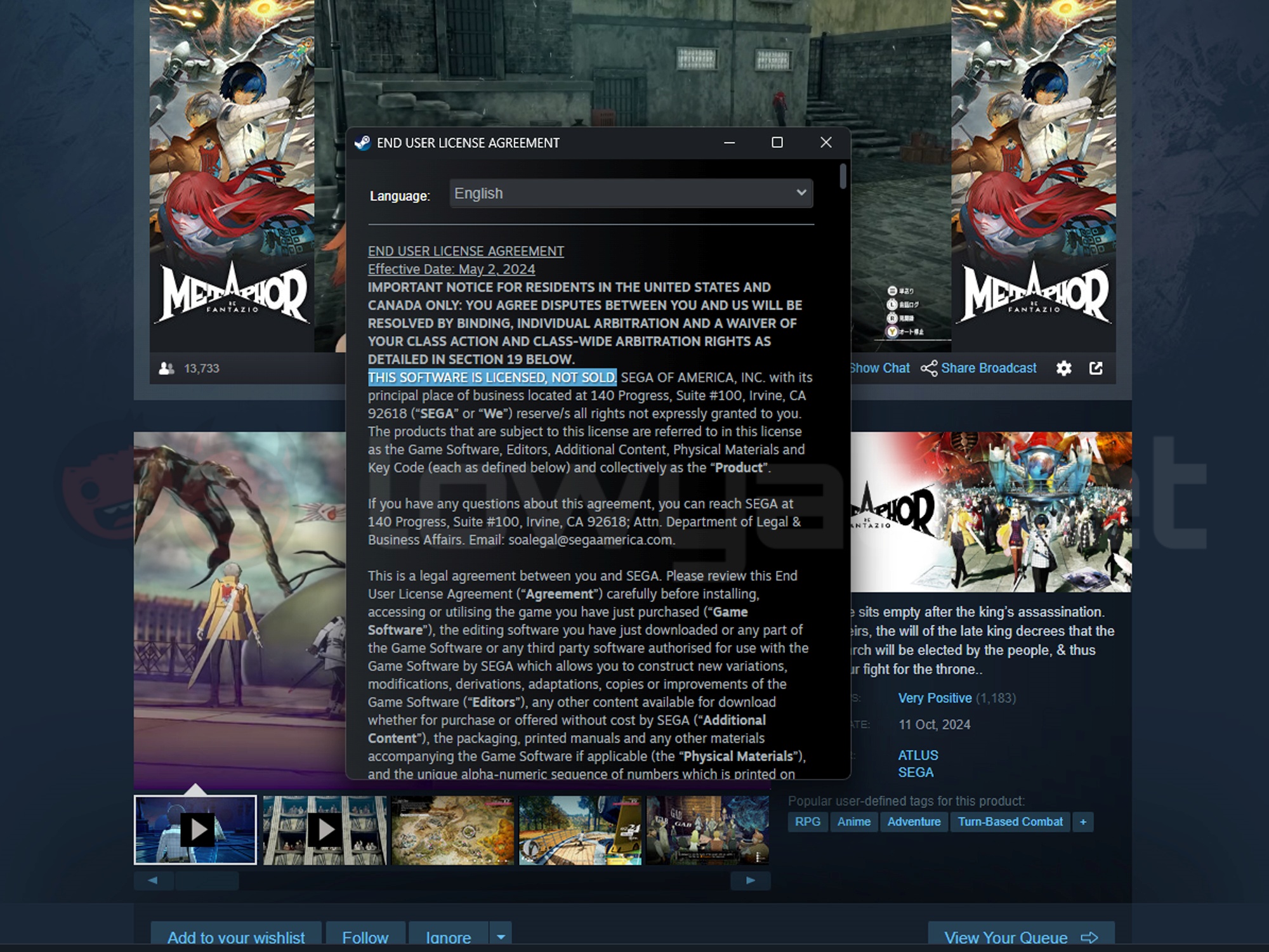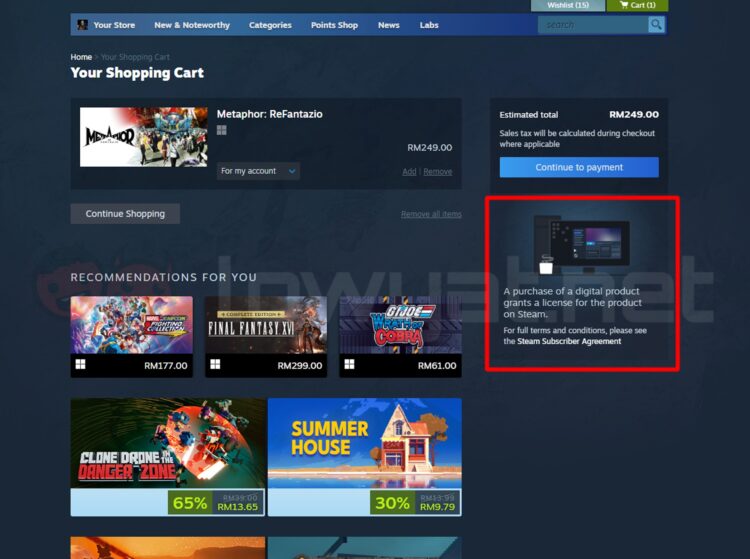Steam is now clearly highlighting third-party EULA (end-user licence agreement) that’s included on product pages for games and apps hosted on its platform. The attached documents, which are prepared separately by different publishers or developers, notify users that the software purchased is licensed to them and not sold. And just for safe measure, the notice now appears at the checkout page as well (shown above).
This move appears to be an attempt by Valve, Steam’s operating company, to get ahead of the AB 2426 law that’s set to be implemented next year. For the uninitiated, this new ruling forces companies to admit to buyers that they don’t actually own digital content, but rather the licence to access them. It will not apply to permanent offline downloads, only digital copies of video games, music, movies, TV shows or ebooks from an online storefront.

Once AB 2426 comes into effect, companies that fail to comply could face fines for false advertising if they don’t explain in detail regarding the limitations of a given digital purchase. The law resulted from recent cases, most notably Ubisoft’s removal of The Crew from player’s libraries after the game’s servers were taken offline. In case you missed it, our very own Ian Chee has recently prepared an article discussing the new law, so do give that a read too.
Just to be clear, EULAs for digital goods such as games and apps aren’t new. These have been around for quite a while, and most of the time are something that – let’s be honest – most of us tend to skip through. Just as an example, below is an excerpt from SEGA’s EULA that’s included on the Steam page the newly released Metaphor: ReFantazio video game:
“Important – Read carefully: By purchasing, installing, opening, copying and/or otherwise using this product you hereby acknowledge, accept and agree to be bound by the terms of this agreement (including any and all schedules annexed to this agreement). Sega reserves the right to amend or modify this agreement at any time, in any manner, at sega’s sole discretion and without incurring any liability.”

While it may seem that this only applies to those residing in the US and Canada, as stated in a number of EULA on Steam, the reality is far more harrowing than most would believe. The fact of the matter is, regardless of where you’re located and whether or not you paid in full, certain publishers and developers have the right to do whatever they want with their products after purchase – including removing them from your library or disabling the ability to download.
Unfortunately, all of these crucial details are still buried in long-winded EULA documents. Steam’s newly added notice basically serves as a “gentle” reminder that things aren’t always what it seems.
Follow us on Instagram, Facebook, Twitter or Telegram for more updates and breaking news.



